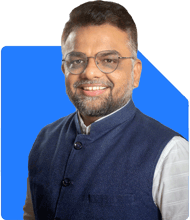Hi Sir, I am 29 years old, currently working in the IT sector with a monthly salary of 1.2 lakhs. I have no liabilities, and my savings include 3 lakhs in mutual funds, 1 lakh in PPF, and 2 lakhs in FDs. I am planning to start my own business in 2 or 3 years. How should I plan my finances and investments to ensure I have a safety cushion and a decent start-up fund by then?
Ans: You are 29 years old with a stable IT job.
Monthly income is Rs. 1.2 lakhs.
You have no loans or EMIs, which is excellent.
You plan to start a business in 2–3 years.
This needs structured planning and good financial discipline.
Let us look at your complete situation step-by-step.
Current Financial Position
You have Rs. 3 lakhs in mutual funds.
You have Rs. 1 lakh in PPF.
You have Rs. 2 lakhs in fixed deposits.
Your total savings is Rs. 6 lakhs.
You have no loans or other liabilities.
Your monthly income gives you good financial space.
You are in a very good starting position.
Emergency Fund – First Step
Before anything, build your emergency fund.
Emergency fund should cover 6 to 9 months of expenses.
For you, Rs. 2.5 to 3 lakhs is enough.
This fund must be in liquid mutual funds.
Don’t keep emergency money in equity or risky assets.
Do not mix emergency fund with other goals.
This fund is not for business or investment.
It is for medical, job loss, or family emergencies.
This gives safety before business risk begins.
Set this up immediately if not already done.
Monthly savings can go into this until it is ready.
Business Fund Goal – Next Priority
You want to start a business in 2 to 3 years.
This is a short-term goal.
So, avoid equity mutual funds for this amount.
Keep this corpus in safe and low-risk investments.
Choose short-term debt mutual funds with MFD guidance.
You may also consider recurring deposit for part of this goal.
Do not invest this amount in risky products.
You need this money to be available safely.
Principal safety is more important than high returns.
Set a target of Rs. 10 to 15 lakhs as business fund.
You can do this by saving Rs. 30,000–35,000 monthly.
Invest monthly using SIPs in short-term funds.
Review once in 6 months with Certified Financial Planner.
Mutual Fund Assessment
You already have Rs. 3 lakhs in mutual funds.
If these are equity funds, you must review the types.
Long-term wealth can grow only in actively managed funds.
Don’t invest in index funds.
Index funds don’t protect in falling markets.
They copy the market but don’t manage risk.
They don’t have active expert handling.
You need funds that give better downside protection.
Actively managed funds give better returns over time.
A Certified Financial Planner and MFD can help you here.
Also, avoid direct mutual funds.
Direct funds don’t come with personalised support.
You miss regular reviews and risk management.
Invest via regular plan through MFD with CFP certification.
This gives proper structure and expert monitoring.
Don’t pick funds on your own through online apps.
Wrong fund mix can reduce returns or increase risk.
Proper mutual fund portfolio must match your goals.
PPF and FD Evaluation
You have Rs. 1 lakh in PPF.
Continue yearly contribution for long-term safety.
PPF is good for retirement and wealth security.
It gives tax-free interest and is backed by the government.
Use it only for long-term goal like retirement.
Don’t withdraw PPF for business or short-term needs.
Let it run quietly in background for compounding.
You have Rs. 2 lakhs in fixed deposit.
FDs are low-return, post-tax instruments.
Useful for capital protection but poor for growth.
Can keep part of emergency fund in FD.
Don’t use FDs for long-term investing.
For 2-year goals like business, consider ultra-short-term mutual funds.
They are better in returns and still low risk.
Monthly Savings Strategy
You earn Rs. 1.2 lakhs per month.
After expenses, try to save Rs. 40,000 to 45,000.
First, complete emergency fund.
Then, begin short-term investments for business capital.
Allocate Rs. 30,000 to short-term mutual funds via SIP.
Remaining Rs. 10,000 to PPF or long-term mutual fund.
Review all SIPs and progress every 6 months.
Make changes based on progress and market.
Certified Financial Planner can do this for you.
Your SIPs must match your timelines and risk level.
Insurance – Essential Protection
You haven’t mentioned insurance coverage.
First, take a term life cover of Rs. 1 crore.
This protects your family in case of your absence.
Premium is very low at your age.
Don’t delay this. Do it this month.
Second, take a health insurance of Rs. 5 to 10 lakhs.
Even if employer gives cover, take a separate one.
When you start business, this personal cover will help.
Don’t buy savings insurance or ULIP plans.
They give poor return and high lock-in.
Keep insurance and investment fully separate.
Term and health plans are pure protection.
Preparing for Business Launch
Do not depend on outside loans for business.
Self-funded business is safer and stress-free.
Make sure you have 6 months personal expenses saved.
Also have 12 months business costs ready.
Don’t invest business money in equity funds.
Keep it liquid and available.
In year 2, start reducing your equity SIPs slightly.
Shift more into debt to reduce risk.
This protects you from market shock just before starting.
Business needs patience, capital and fallback funds.
Tax Planning for You
Use Section 80C fully for tax savings.
PPF and ELSS mutual funds help reduce tax.
ELSS also gives long-term growth.
Capital gains from mutual funds are taxable.
Long-term capital gain above Rs. 1.25 lakh is taxed at 12.5%.
Short-term capital gain is taxed at 20%.
Keep your fund records and statements safe.
Use them for yearly tax return filing.
A CFP can help manage tax and fund planning.
Avoid These Mistakes
Don’t take personal loan for business.
Don’t invest in real estate for business use.
Property is illiquid and hard to exit quickly.
Don’t chase high return funds without knowing risk.
Don’t start business without basic insurance.
Don’t ignore emergency fund.
Don’t mix your personal funds with business running cash.
Always keep separate tracking for business and personal finances.
Final Insights
You are in a good financial place today.
You are young and without any liabilities.
Your business dream can become real in 2–3 years.
Start with small steps in disciplined manner.
Emergency fund comes first.
Business capital is second.
Long-term wealth creation should continue in background.
Protect everything with right insurance.
Invest in mutual funds only via MFDs and CFPs.
Avoid index and direct mutual funds.
Structure your monthly savings with a purpose.
Review your plan every 6 months.
Adjust your portfolio as your business plan gets clearer.
Don’t rush into quitting job without strong financial cushion.
Plan the exit carefully with 12 months cost coverage.
With right structure, you will move safely into business.
Keep things simple, clean, and well tracked.
Success comes slowly when steps are steady.
Best Regards,
K. Ramalingam, MBA, CFP,
Chief Financial Planner,
www.holisticinvestment.in
https://www.youtube.com/@HolisticInvestment














.jpg)













